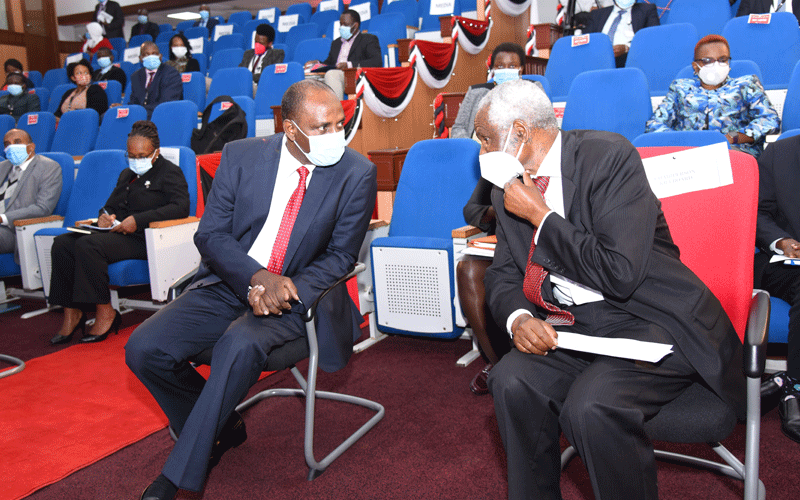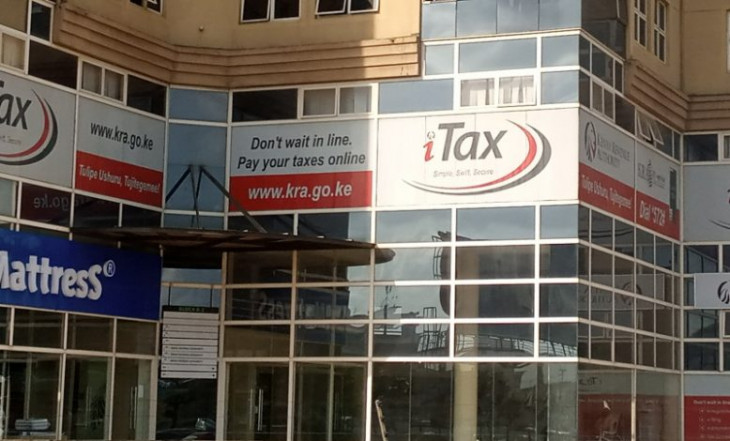Yatani raises concern over Sh500b loss to tax benefits

Kenya loses in excess of Sh500 billion annually through tax concessions or preferences, Treasury Cabinet Secretary Ukur Yatani revealed yesterdaay.
Also known as tax expenditure, these are estimated revenue loss following tax concessions or preferences to a particular class of taxpayers or activity.
Yatani said the country’s tax expenditure amounted to Sh535.9 billion in 2018, which is equivalent to 6 per cent of gross domestic product (GDP).
From the tax expenditure, Value Added Tax (VAT) accounted for 69.2 per cent followed by corporate income tax at 15.7 per cent while customs exemptions and remissions accounted for 13.9 per cent.
“We are considering a review of tax expenditures and incentives to minimise such revenue loss,” Yatani said when he presided over the 6th tax summit organised by Kenya Revenue Authority (KRA) in Nairobi yesterday.
Over time, the CS said the government has expanded the scope of tax incentives aiming to reduce the tax burden, attract investments, and encourage economic growth.
These include incentives such as preferential rates of tax, enhanced investment deductions, tax reliefs, zero rating for VAT purposes, remission of taxes and exemptions.
On the downside, this has unfortunately resulted in a year-on-year surge in tax expenditure, constraining revenue mobilisation.
Tax exemptions and reliefs meant to cushion Kenyans from the effect of the Covid-19 pandemic cost the country Sh172 billion in foregone revenue in the first phase alone.
The measures included exempting from PAYE, persons earning Sh24,000 and below, reducing corporate and personal income tax rate from 30 per cent to 25 per cent, reducing the VAT rate from 16 per cent to 14 per cent and reducing turnover tax rate from three per cent to one per cent.
Tax administration
“It is therefore fundamental that as a country we reconsider tax policies that provide for such expenditures to ensure sustained revenue mobilisation,” Yatani said.
Speaking during the event, KRA Commissioner General, Githii Mburu said the agency had changed tact in tax administration and was gradually dropping the enforcement approach choosing to facilitate the taxpayers instead.
“We have witnessed this approach bearing fruits, not only in enhancing good relationships with taxpayers, but also in providing new ideas and innovations useful for improving the tax environment,” he said.
Other than reviewing tax expenditures, the government plans to introduce other measures such as implementing the digital services tax and improving the competitiveness of the country’s business environment to facilitate efficient mobilization of revenue.
“Effective January 1, 2021, Kenya shall implement Digital Service Tax (DST) payable at 1.5 per cent of the gross transaction value of income derived or accrued in Kenya from services offered through a digital market place,” said Yatani.
Already, VAT Regulation 2020 provides a mechanism for non-residents to account for VAT on supplies made in Kenya though a digital marketplace.
By implementing the tax, passed in the Finance Act of 2019, the government is seeking to raise revenue from the country’s ICT sector which has grown at an average of 10.8 per cent annually over the last five years to hit a total output of to Sh427 billion in 2019.
The digital economy contributes approximately $11 trillion to the global economy, 15 per cent of the global GDP.















